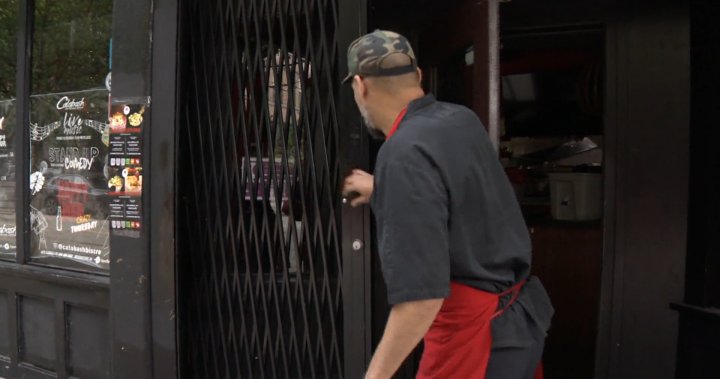In what was once a thriving corner of Vancouver’s cultural landscape, Calabash Bistro has permanently shuttered its doors after 14 years of operation. The Caribbean restaurant, known for its vibrant atmosphere and authentic cuisine, has become the latest casualty in what some local business owners describe as an increasingly hostile environment in the Downtown Eastside.
“It feels like a war zone,” says Roger Collins, co-owner of Calabash Bistro, describing the neighborhood’s rapid deterioration. “The level of vandalism, theft, and harassment has reached a tipping point that makes it virtually impossible to maintain a viable business.”
The restaurant, which had become a beloved fixture on Carrall Street since 2010, encountered mounting challenges over recent years. Daily incidents ranging from broken windows to verbal assaults on staff and customers created an atmosphere of perpetual anxiety for both employees and patrons.
Collins reports that repair costs alone exceeded $40,000 in the past year, with insurance premiums simultaneously skyrocketing. “When you’re spending more on security and repairs than on food inventory, the financial equation simply doesn’t work anymore,” he explains.
According to the Vancouver Police Department, property crime in the Downtown Eastside increased by 27% in the first quarter of 2024 compared to the same period last year. Business owners throughout the district report similar experiences, creating what the local business association calls a “crisis of sustainability” for remaining establishments.
City Councillor Sarah Martinez acknowledges the severity of the situation. “We recognize that business owners are facing unprecedented challenges. The intersection of mental health issues, addiction, homelessness, and crime requires a comprehensive approach that balances compassion with practical safety measures.”
Critics, however, argue that municipal responses have been inadequate and slow-moving. The Vancouver Business Improvement Association has called for increased police presence, expedited mental health services, and targeted economic incentives to prevent further closures.
“Each business that closes represents not just lost jobs, but lost cultural capital for our city,” notes urban development expert Dr. James Hirsch. “Places like Calabash provided more than food—they created community spaces that brought diverse groups together.”
For Roger Collins and his staff, the decision to close wasn’t made lightly. “We tried everything—additional security, adjusted hours, community outreach—but ultimately, we couldn’t continue asking our team to work in fear or our customers to brave increasingly dangerous conditions.”
As Vancouver grapples with this complex crisis, the closure of Calabash Bistro raises profound questions about the future of small businesses in urban centers facing similar challenges. Can cities effectively balance social support for vulnerable populations with the concrete security measures needed to maintain thriving business districts? The answer may determine whether other beloved local establishments will soon follow Calabash’s difficult path to closure.










